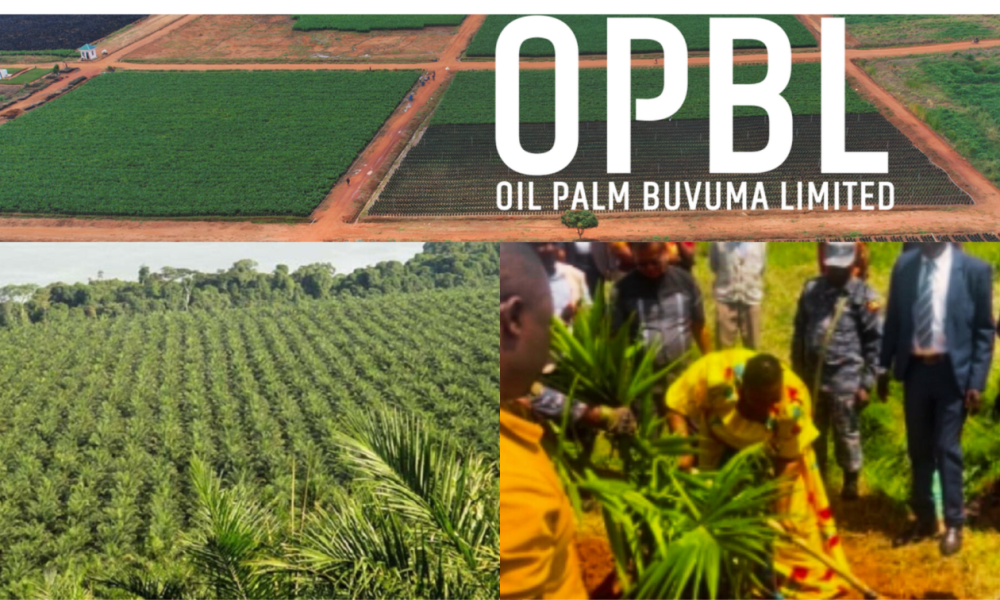MEDIA FOR CHANGE NETWORK
Nine (9) years and still counting: Buvuma residents still await compensation for land grabbed by the Oil palm project.
Published
2 years agoon
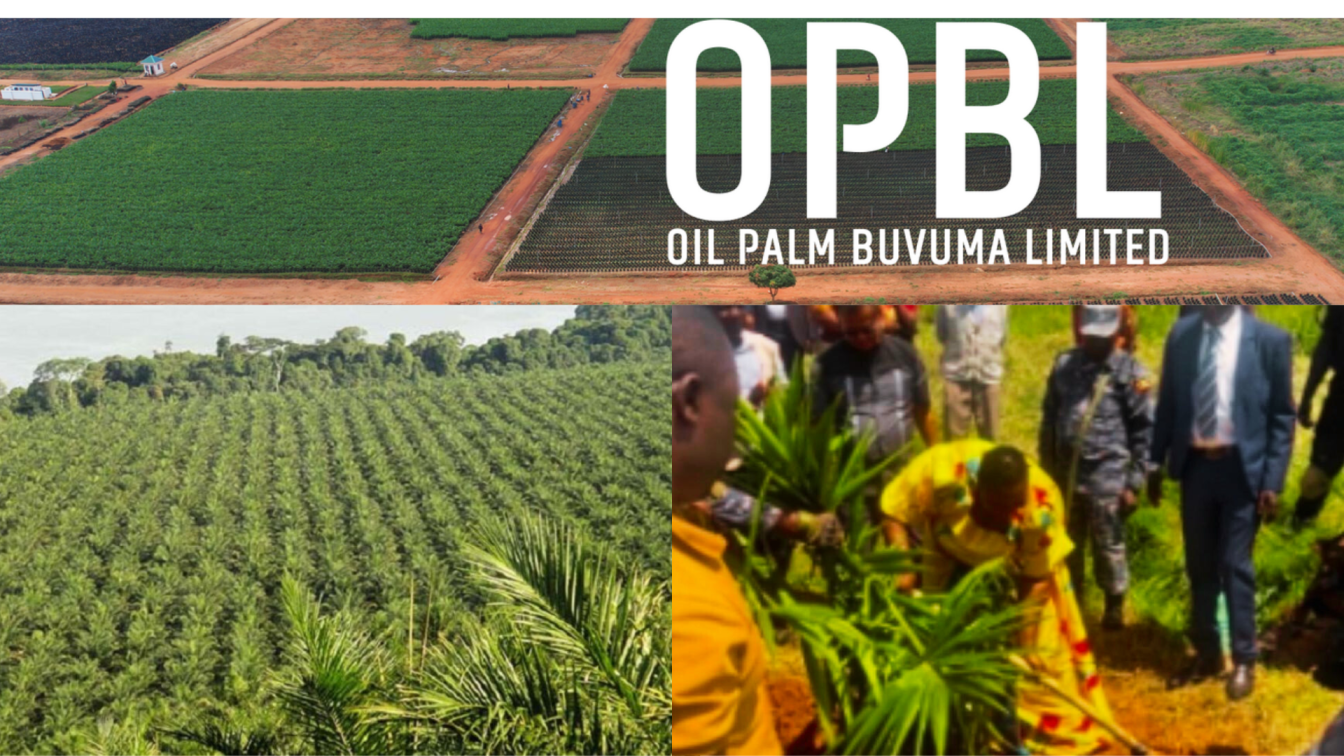
By Witness Radio Team.
When the oil palm growing project was introduced in the Nairambi sub-county, Buvuma district, in 2015, it was greeted with an abundance of praise, leading many community members to wholeheartedly embrace it.
“We were promised numerous benefits with the project. Our leaders were preached with success stories of how oil palm projects had transformed communities where it had been grown before. In a short period, they urged us not to let the spirits of poverty linger with us, insisting that we must embrace the project in our district to attain wealth.” Residents from Kakyanga shared their sentiments with Witness Radio about the project.
The pattern observed in many other countries where oil palm tree growers used tricks to grab people’s land is replicated in the Buvuma district. Private companies and government officials promised communities new schools, good roads, functional health centers, and helping needy families, etc. as a persuasion tool to win their hearts on top of fair and adequate compensation pledges.
9 years later, individual families realized that they were deceived into signing documents to surrender their land to grow oil palm trees. Agreements were written in English (not translated to their dialect), and signed copies were hidden from residents.
“We consented to the government’s proposal to utilize our land for the project, lured by the promises of substantial benefits. The survey of the project land promptly commenced, leading to the expropriation of our property. Despite the passage of several years, the pledged benefits from the project remain unfulfilled,” residents interviewed by Witness Radio narrated their concerns.
But, the on-the-ground realities are diverse and the project has been labeled as a curse by the Project Affected Persons (PAPs). Unfortunately, it has resulted in tragic consequences, including loss of life, homelessness, increased poverty, and heightened hunger among communities that thrived well before the project commenced.
According to the residents, their land measuring over 388 hectares in Kakyanga, Kiziiru, Bukiindi, and Bukalabati villages, is occupied by oil palm trees owned by the National Oil Palm Project since 2019.
Nakato Khadija, a 45-year-old, now finds herself harvesting spear grass to make a living. “Whenever I reflect on the impact this project has had on me and my family, a sense of despair sets in. It’s disheartening that someone who once owned 19 acres of land now possesses nothing in life.” She revealed this to the Witness Radio research team.
By 5 pm evening, on Friday,19th 2024 when Witness Radio interviewed her, the sole caretaker of a family of 15 was still harvesting spear grass with an old sickle in a garden that is 12 kilometers away from where she rents in Tojjo village.
“This is the only job I can do now, it is where I get what to feed the family. Every bunch of spear grass [locally called enjole] costs 500 Ugx shillings (about 0.13 United States Dollars). So, you have to cut as many as you can to get some good money. Imagine if all the bushes are done, how shall we survive.” Nakato questioned?
Nakato is not alone, she is one of the more than 600 people whose land was taken for Oil palm growing from 4 villages in Buwanga parish, Nairambi Sub-county in Buvuma district without compensation or resettlement.
According to residents who shared their experiences with Witness Radio, they were deceived into initially handing over their land to the investor, with the promise of receiving compensation later. However, to their dismay, years have passed, and they are still waiting in vain for the promised compensation
“We haven’t received compensation for our land that was taken 9 years ago, and a significant number of people are enduring immense suffering. They relinquished their land for the oil palm project and are now thrust into overwhelming poverty,” another resident emphasized.
“We were instructed to surrender our land to the investor with the promise that the project would lead to the development of our community and create employment opportunities. Our leaders, along with Epayi Gerald, who facilitated the land acquisition on behalf of the investor, convinced us to part with our land before receiving compensation.” Residents further highlighted.
In 2017, representatives from the government and the National Oil Palm Project (NOPP) conducted a land survey to assess and value their properties for compensation. Around 2019, they (government and NOPP) returned with disclosure forms that indicated amounts below the community’s expectations. Despite the inaccurate valuation of their land and property, the promised compensation, according to the affected residents, remains unpaid.
Mr. Kyeswa Alex, another resident grappling with the impact of the project, disclosed that the community was barred from utilizing their land in 2018, intensifying hunger in their area since many of them were farmers, who used their land for agricultural production.
Community members report that eight individuals have lost their lives due to lack of food, compelling many residents to turn to illegal fishing as a desperate means of survival.
Mrs. Nakato revealed to Witness Radio that two of her family members including her husband and son were arrested, by the army, all accused of illegal fishing. She attributed all this chaos to the arrival of the Buvuma oil palm project, which disrupted their lives. Currently, she is renting in Tojjo village, grappling with the challenges of her daily life.
“To secure a living for our family, my husband had turned to fishing. However, he was apprehended by the army three years ago, and accused of illegal fishing. Subsequently, our son, who stepped in to shoulder the responsibilities, was also arrested six months ago on the same charge of illegal fishing,” a teary Nakato revealed.
One of the Buvuma Counsellors, affirms that residents have been waiting for the government’s compensation for over 9 years but in vain.
“People are facing dire circumstances, with some even losing their lives. The lack of available land for cultivation has left many without enough food to eat. The dreams of young girls and boys are being shattered as their parents struggle to afford school fees. Meanwhile, the prices of land are on the rise, and we fear that the government may compensate based on outdated valuations from four years ago. It is essential that they receive fair compensation because the project was intended to benefit them, not push them into poverty,” the leader emphasized.
He added, “We have pleaded with the government on numerous occasions to compensate our people, but they keep assuring us that payment will happen soon. However, this promised time never arrives, and people continue to suffer in anguish.”
The Buvuma oil palm project is part of the five oil palm hubs set up by the National oil palm project. The others are, Kalangala; Mayuge (Mayuge, Bugiri, and Namayingo); Greater Masaka (Kyotera, Kalungu, and Masaka); and Greater Mukono (Mukono and Buikwe.
In 2018, the Government of Uganda (GoU) received a loan from the International Fund for Agricultural Development (IFAD) to finance a ten-year National Oil Palm Project (NOPP). The project with a total financing of US$ 216.2 million is being implemented by the Ministry of Agriculture Animal Industry and Fisheries (MAAIF) as the Lead Project Agency, in partnership with other agencies, the private sector, and farmer Organizations.
Oil palm Buvuma Limited is mandated to develop seedlings and ensure production, while BIDCO takes center in refining, farmer associations are key partners in the Farmer organization, and MAAIF is key in monitoring and scaling the project as well as ensuring there is land acquisition.
But Mr. Sserunjoji William, the district’s Senior Assistant Chief Administrative Officer (Deputy CAO), who also acts as the National oil palm project focal person, told Witness Radio that the government is in the process of finalizing the valuation assessments to kickstart the compensation.
“Indeed, we have not compensated the community members, and I acknowledge the concerns raised. However, the government requires time to assess land ownership meticulously to ensure accurate compensation for the rightful individuals. We are currently in the process of conducting these assessments, and soon, this year the community members will receive their compensation.” Mr. Sserunjoji added.
Related posts:
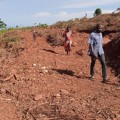
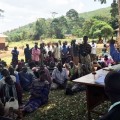 Oil palm growing: New twist as Buvuma residents disown group over compensation
Oil palm growing: New twist as Buvuma residents disown group over compensation
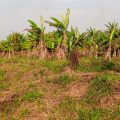 Oil palm growing threatening food security in Buvuma
Oil palm growing threatening food security in Buvuma
 Corporates count profits from palm oil plantations grown on a grabbed land, as former landowners reduced to a poverty-stricken community…
Corporates count profits from palm oil plantations grown on a grabbed land, as former landowners reduced to a poverty-stricken community…
 Hoima Court allows government to deposit rejected compensation by Tilenga oil project affected persons (PAPs) in court.
Hoima Court allows government to deposit rejected compensation by Tilenga oil project affected persons (PAPs) in court.
You may like
MEDIA FOR CHANGE NETWORK
“Vacant Land” Narrative Fuels Dispossession and Ecological Crisis in Africa – New report.
Published
3 days agoon
November 13, 2025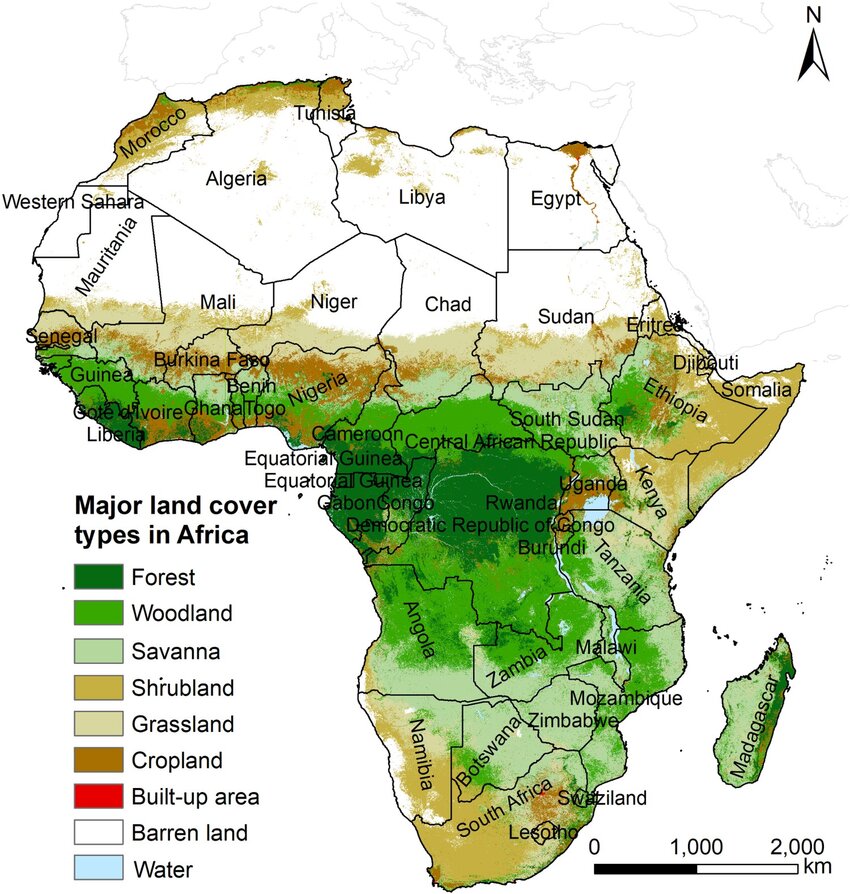
By Witness Radio team.
Over the years, the African continent has been damaged by the notion that it has vast and vacant land that is unused or underutilised, waiting to be transformed into industrial farms or profitable carbon markets. This myth, typical of the colonial era ideologies, has justified land grabs, mass displacements, and environmental destruction in the name of development and modernisation.
A new report by the Alliance for Food Sovereignty in Africa (AFSA) titled “Land Availability and Land-Use Changes in Africa (2025)” dismisses this narrative as misleading. Drawing on satellite data, field research, and interviews with farmers across Africa, including Zambia, Mozambique, South Africa, and Zimbabwe, the study reveals that far from being empty, Africa’s landscapes are multifunctional systems that sustain millions of lives.
“Much of the land labelled as “underutilised” is, in fact, used for grazing, shifting cultivation, gathering wild foods, spiritual practices, or is part of ecologically significant systems such as forests, wetlands, or savannahs. These uses are often invisible in formal land registries or economic metrics but are essential for local livelihoods and biodiversity. Moreover, the land often carries layered customary claims and is far from being available for simple expropriation,” says the report.
“Africa has seen three waves of dispossession, and we are in the midst of the third. The first was the alienation of land through conquest and annexation in the colonial period. In some parts of the continent, there have been reversals as part of national liberation struggles and the early independence era. But state developmentalism through the post-colonial period also brought about a second wave of state-driven land dispossession.” This historical context is crucial to understanding the current state of land rights and development in Africa. Said Ruth Hall, a professor at the Institute for Poverty, Land and Agrarian Studies (PLAS), at the University of the Western Cape in Cape Town, South Africa, during the official launch of the report.
The report further underestimates the assumption that smallholder farmers are unproductive and should be replaced with mechanised large-scale farming, leading to a loss of food sovereignty.
“The claim that small-scale farmers are incapable of feeding Africa is not supported by evidence. Africa has an estimated 33 million smallholder farmers, who manage 80% of the continent’s farmland and produce up to 80% of its food. Rather than being inefficient, small-scale agro-ecological farming offers numerous advantages: it is more labour-intensive, resilient to shocks, adaptable to local environments, and embedded in cultural and social life. Dismissing this sector in favour of large-scale, mechanised monocultures undermines food sovereignty, biodiversity, and rural employment.” Reads the Report.
The idea that industrial agriculture will lift millions out of poverty has not materialised. Instead, large-scale agribusiness projects have often concentrated land and wealth in the hands of elites and foreign investors. Job creation has been minimal, as modern farms rely heavily on machinery rather than human labour. Moreover, export-oriented agriculture prioritises global markets over local food security, leaving communities vulnerable to price fluctuations and shortages.
“The promise that agro-industrial expansion will create millions of decent jobs is historically and economically questionable. Agro-industrial models tend to displace labour through mechanisation and concentrate benefits in the hands of large companies. Most industrial agriculture jobs are seasonal, poorly paid, and insecure. In contrast, smallholder farming remains the primary source of employment across Africa, particularly for young people and women. The idea that technology-intensive farming will be a panacea for unemployment ignores the structural realities of African economies and the failures of previous industrialisation efforts.”
Additionally, the assumption that increasing yields and expanding markets will automatically improve food access overlooks the structural causes of food insecurity. People’s ability, particularly that of the poor and marginalised, to access nutritious food depends on land rights, income distribution, gender equity, and the functioning of political systems. In many countries, high agricultural productivity coexists with hunger and malnutrition because food systems are oriented towards export and profit rather than equitable distribution and local nourishment. It highlights the urgent need for equitable food distribution, making the audience more empathetic and aware of the issue.
Furthermore, technological fixes such as improved seeds, synthetic fertilizers, and irrigation are being promoted as solutions to Africa’s food insecurity, but evidence suggests otherwise. The Alliance for a Green Revolution in Africa (AGRA) spent over a decade pushing such technologies with little success; hunger actually increased in its target countries.
These high-input models overlook local ecological realities and structural inequalities, while increasing dependence on costly external inputs. As a result, smallholders often fall into debt and lose control over their own seeds and farming systems. It underscores the importance of understanding and respecting local ecological realities, making the audience feel more connected and responsible.
Africa is already experiencing an increased and accelerating squeeze on land due to competing demands including rapid population growth and urbanisation, Expansion of mining operations, especially for critical minerals like cobalt, lithium, and rare-earth elements, which are central to the global green transition, The proliferation of carbon-offset projects, often requiring vast tracts of land for afforestation or reforestation schemes that displace existing land users, Rising global demand for timber, which is increasing deforestation and land competition as well as Agricultural expansion for commodity crops, including large-scale plantations of palm oil, sugarcane, tobacco, and rubber.
“In East Africa, we see mass evictions, like the Maasai of Burunguru, forced from their ancestral territories in the name of conservation and tourism. In Central Africa, forests are cleared for mining of transitional minerals, destroying ecosystems and livelihoods. Women, a backbone of Africa’s food production, remain the most affected, and least consulted in decisions over land and resources and things that affect them.” Said Mariam Bassi Olsen from Friends of the Earth Nigeria, and a representative of the Alliance for Food Sovereignty in Africa.
The report urges a shift away from Africa’s high-tech, market-driven, land-intensive development model toward a just, sustainable, and locally grounded vision by promoting agroecology for food sovereignty, ecological renewal, and rural livelihoods, while reducing the need for land expansion through improved productivity, equitable food distribution, and reduced waste.
Additionally, a call is made for responsible urban planning, sustainable timber management, and reduced mineral demand through circular economies, as well as the legal recognition of customary land rights, especially for women and Indigenous peoples, and adherence to the principle of Free, Prior, and Informed Consent (FPIC) for all land investments.
Related posts:
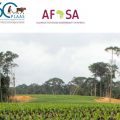
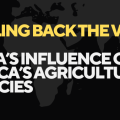 AGRA’s Silent Takeover: The Hidden Impact on Africa’s Agricultural Policies.
AGRA’s Silent Takeover: The Hidden Impact on Africa’s Agricultural Policies.
 63 million people food insecure in Horn of Africa: report
63 million people food insecure in Horn of Africa: report
 African Food Systems Summit 2024: Do not use it to promote failed agricultural models – African Faith Leaders.
African Food Systems Summit 2024: Do not use it to promote failed agricultural models – African Faith Leaders.
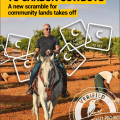 Carbon offset projects exacerbate land grabbing and undermine small farmers’ independence – GRAIN report
Carbon offset projects exacerbate land grabbing and undermine small farmers’ independence – GRAIN report
MEDIA FOR CHANGE NETWORK
Uganda’s Army is on the spot for forcibly grabbing land for families in Pangero Chiefdom in Nebbi district.
Published
3 days agoon
November 13, 2025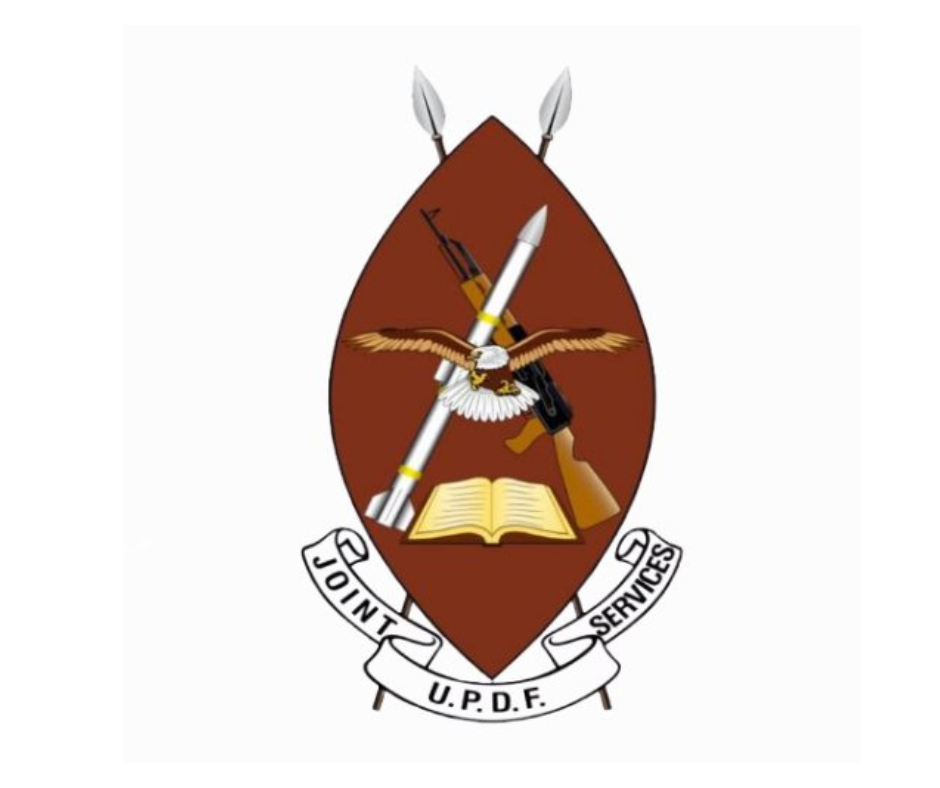
By the Witness Radio team.
Despite the challenges, the community in Koch Parish, Nebbi Sub-County, in Nebbi District, near the Congolese border, has shown remarkable resilience. The Army seized approximately 100 acres of land, including private buildings, that members of the local Koch community had used for over 150 years to establish an Army barracks. Their resilience in the face of such a significant loss is genuinely inspiring.
The UPDF, as described on its website, is a nonpartisan force, national in character, patriotic, professional, disciplined, productive, and subordinate to the civilian authority as established under the constitution. Furthermore, it states that its primary interest is to protect Uganda and Africa at large, providing a safe and secure environment in which all Ugandan citizens can live and prosper.
However, according to a whistleblower, when the UPDF seized their land, no military chiefs offered prior communication, consultation, compensation, or resettlement. Instead, Uganda’s national Army only occupied people’s land forcefully, and not even the section commanders offered an official explanation.
“Citizens just woke up to a massive Army deployment in their fields,” wrote a whistleblower in an exchange with Witness Radio.
The occupied area in Koch Parish is not just a piece of land, but a home to the members of the Pangero chiefdom. This community belongs to the Alur kingdom, which spans north-western Congo and western Uganda, north of Lake Albert.
The reality and daily life of the Pangero community, which typically lives in a closely connected and communal manner, have been significantly impacted by the loss of both private and communal land. Not only is the cultural identity associated with land and community life at risk, but access to cultural sites, such as the graves of ancestors, is now denied.
Members of the local community who resisted the unlawful seizure of their land were reported to have been harassed and defamed. Despite these challenges, they continue to fight for their rights, making negotiations with the UPDF significantly more challenging.
Beyond the human suffering, the takeover also raises serious legal questions under Ugandan land law. Under Ugandan law, this action by the UPDF constitutes an illegal act. In principle, the government and, by extension, the Army are entitled to take over land if it is in the public interest, and are subject to fairly compensating the landowners.
However, this is subject to the condition that their intention is clearly communicated in advance and that negotiations take place with the previous residents, resulting in a mutual agreement on the necessary and appropriate compensation.
When faced with community resistance, the Army was compelled to conduct a survey and valuation of the land occupied by the UPDF in 2023 and 2024. However, land defenders in the area claim that the process was marred by irregularities in some cases, against the will and in the absence of many landowners.
“The community was also pressured by the Koch Land Committee responsible for the review. Despite that it was supposed to represent the local population, it was not democratically elected by consensus, as is tradition in Alur communities, and was comprised of an imposed elite.” A local defender told Witness Radio
At an announcement meeting facilitated by officials from the UPDF Land Board, their national surveyor, and the Commander of Koch Army Barracks on September 19, 2025, community members were compelled to sign documents for meager compensation for land that had been seized five years prior.
“Residents whose land was surveyed before were given two choices: To sell their land to the Army by accepting the offered compensation, or to refuse the UPDF’s offer. In the latter case, however, it would be necessary to contact the Army headquarters in Mbuya, which is far away, to assert one’s claims or submit a petition.” Says another defender. Despite signing for this money, as of the writing of this article, the community claims it had never received it, almost two months later.
Mr Opio Okech, who attended the meeting himself, disapproves that this equates to a forced decision to sell, as the further necessary measures seem almost impossible for those affected without legal knowledge or external support.
“The problem here from the government was to enter upon the land, stay for long without adequate awareness creation, then decide we are going nowhere. Come for compensation. This looks, smells, and walks like a forceful eviction, “he mentions.
The effects of forced land acquisition by the UPDF in Koch Parish pose a high risk of home and landlessness, rises in youth criminality, and recurring poverty, primarily affecting women and children. Furthermore, the dispersal of the traditional community of the Pangero chiefdom is most likely to result in a severe loss of cultural heritage.
The Ugandan government has a duty here to look after the needs of this traditional community beyond compensation. This could include providing alternative land on which the traditional communal way of life could continue.
Witness Radio had not received a response from Army spokesperson Mr. Felix Kulayigye regarding the land grab, despite several attempts. However, since the initial takeover in 2020, another land grab by the same agency is looming in the same Kochi community for the expansion of the Army barracks.
According to sources, the UPDF intends to acquire more than 1,000 acres in total, nearly half of Koch Parish, leaving residents in fear and uncertainty.
“People are now panicking because they have heard speculations that more land is being
targeted for expansion. They are concerned about the impunity of the national Army, since the land that was grabbed five years ago has not been paid for, and now there are reports that more than 1,000 acres of community land are being targeted.” Mr. Okello further revealed.
The fate of the Pangero chiefdom is not an isolated case. Across Uganda, communal lands belonging to traditional clans and kingdoms continue to face similar threats from investors and state actors. Although Ugandan law recognizes customary ownership, enforcement often remains weak, and those affected rarely have access to the information or resources needed to defend their rights.
Related posts:

 Church of Uganda’s call to end land grabbing is timely and re-enforces earlier calls to investigate quack investors and their agents fueling the problem.
Church of Uganda’s call to end land grabbing is timely and re-enforces earlier calls to investigate quack investors and their agents fueling the problem.
 Ugandan army to punish soldiers for torturing Journalist in Kampala
Ugandan army to punish soldiers for torturing Journalist in Kampala
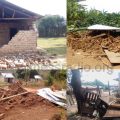 Mubende district police are aiding land grabbing and committing crimes against locals they are obliged to protect.
Mubende district police are aiding land grabbing and committing crimes against locals they are obliged to protect.
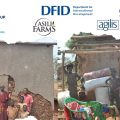 Uganda: World Bank financing is violently forcing thousands of local families off their land for large-scale cereal growing.
Uganda: World Bank financing is violently forcing thousands of local families off their land for large-scale cereal growing.
MEDIA FOR CHANGE NETWORK
Seed Sovereignty: Most existing and emerging laws and policies on seeds are endangering seed saving and conservation on the African continent.
Published
5 days agoon
November 11, 2025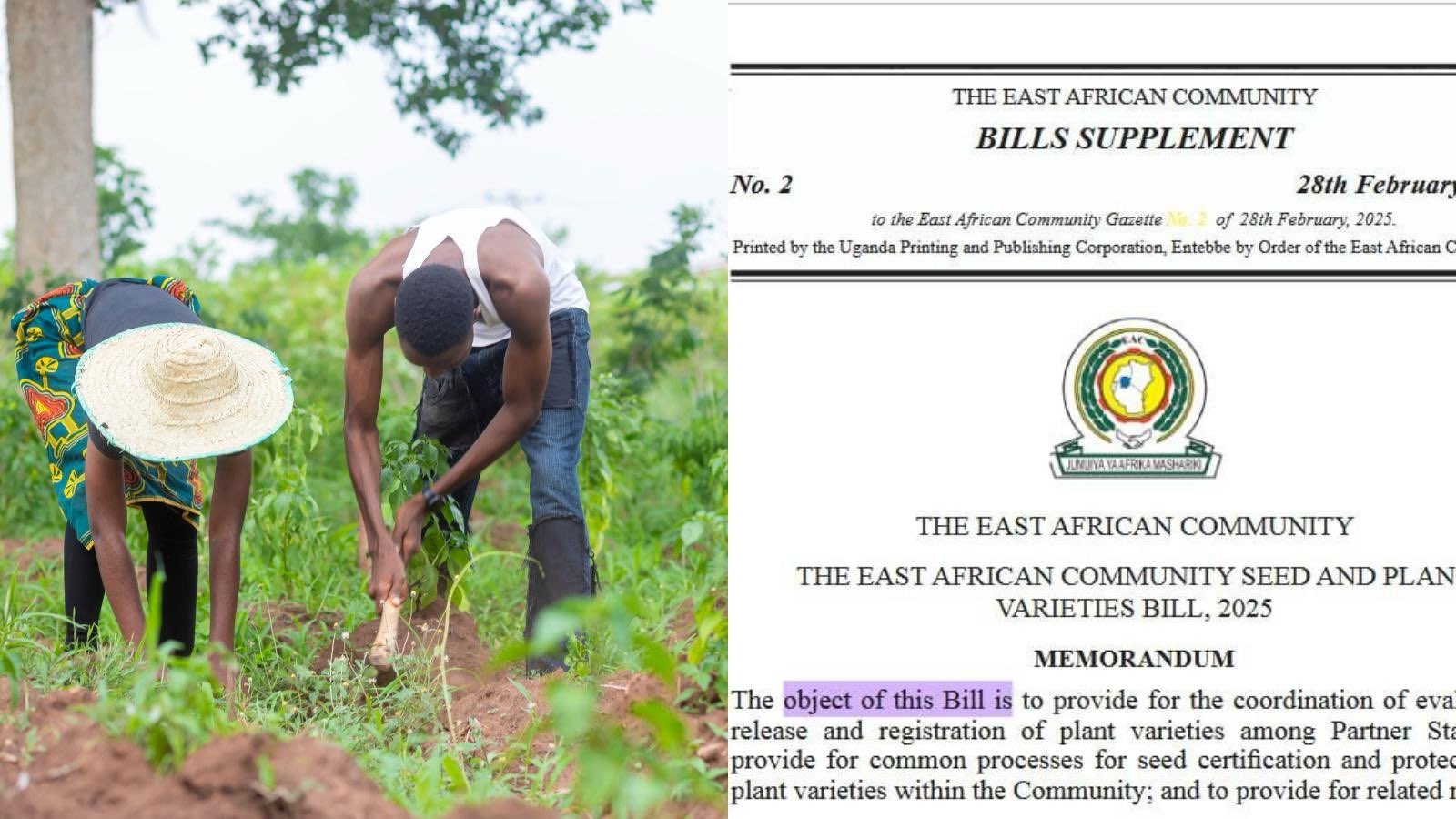
By the Witness Radio team
In Africa, farmers and civil society organizations are urgently warning about the adverse effects of existing policies on agrobiodiversity. These policies aim to erode centuries-old traditions of seed saving and exchange, effectively undermining seed sovereignty and intensifying dependency on commercial seed companies.
The struggle over seed sovereignty, particularly the rights of smallholder farmers, has become one of the most pressing issues for the continent’s agricultural future. As governments introduce new seed laws, such as the proposed East African Seed and Plant Varieties Act Bill of 2024, the preservation of cultural seeds and the rights of smallholder farmers are at stake.
The Communications and Advocacy Officer at Kenya’s Seed Savers Network, Tabitha Munyeri, notes that this has heightened monoculture, thereby significantly reducing the focus on indigenous plant varieties.
“There’s a lot of loss of agrobiodiversity with people focussing on a few foods, a few crops, leaving out so many other essential crops that have sustained humankind for generations and it is also important because it is coming at a time where we are having a lot of also conversations around different seed laws that are coming up for example within the EAC we see that there is the seed and plant varieties bill of 2024 and we are looking at it as a huge setback and there is need for us to create awareness around even the policies that exist.”
She further argues that there is a need to raise awareness and sensitise farmers to the existing policies so that they can understand their effects on agrobiodiversity.
“Even for Kenya we have been having punitive seed laws for the longest time but now we are happy that courts of law are reviewing the law, but we still think that there is need to create a lot of advocacy around the seed laws and what they really mean to farmers because some of them do not understand, some of them are not even interested but once they get to know what it means and the impacts that the laws have on them then they are also able to become more vocal and more involved in the process.” She says.
Farmers in Africa have been the custodians of agricultural biodiversity, developing and maintaining numerous varieties of crops that are suited to local soils and climates. However, over the last few decades, the focus on farming has drastically declined to a handful of “high-yield” crops and imported hybrid varieties, leaving out the diverse indigenous seeds that have sustained communities through droughts, pests, and diseases.
Munyeri warns that this decline in agrobiodiversity is accelerating, driven not merely by market pressures, but by restrictive laws that criminalise and discourage traditional seed-saving practices.
In Kenya, where smallholder farmers supply more than 80 percent of the country’s food, seed systems have long depended on the informal exchange of seeds within communities. Small-hold farmers have relied on these systems to share, adapt, and innovate with seeds suited to their local conditions. However, existing laws have tended to favour the formal sector, requiring seed certification, variety registration, and compliance with intellectual property protections that most small-scale farmers cannot afford.
The 2024 Seed and Plant Varieties Act Bill, currently under discussion in several East African countries, has sparked significant controversy. It seeks to modernize agriculture and align national systems with international standards. However, smallholder farmers and critics contend that it allows corporate control over genetic resources, limiting farmers’ autonomy and threatening biodiversity. Under such a framework, only registered seed varieties can be legally traded or exchanged, effectively outlawing the informal seed networks that have sustained rural communities for centuries.
If smallholder farmers lose their rights to exchange and cultivate indigenous varieties, they may also lose control over their food systems. Dependence on improved seeds necessitates purchasing new stock each planting season, eroding self-reliance and increasing vulnerability to market fluctuations.
This awareness gap is what the Seed Savers Network hopes to address. Through training programs and advocacy initiatives, including its recently concluded regional boot camp, the organization equips participants from across Africa with knowledge about seed laws, biodiversity, and policy engagement.
Related posts:

 Seed Boot Camp: A struggle to conserve local and indigenous seeds from extinction.
Seed Boot Camp: A struggle to conserve local and indigenous seeds from extinction.
 The EAC Seed & Plant Varieties Bill, 2025, is a potential threat to smallholder farmers, as it aims to disengage them from the agriculture business, according to experts.
The EAC Seed & Plant Varieties Bill, 2025, is a potential threat to smallholder farmers, as it aims to disengage them from the agriculture business, according to experts.
 CSOs and Smallholder farmers are urgently convening to scrutinize the EAC Seed & Plant Varieties Bill, 2025.
CSOs and Smallholder farmers are urgently convening to scrutinize the EAC Seed & Plant Varieties Bill, 2025.
 African governments are giving in to corporate pressure and undermining local seed systems – report
African governments are giving in to corporate pressure and undermining local seed systems – report

“Vacant Land” Narrative Fuels Dispossession and Ecological Crisis in Africa – New report.

Uganda’s Army is on the spot for forcibly grabbing land for families in Pangero Chiefdom in Nebbi district.

Climate wash: The World Bank’s Fresh Offensive on Land Rights

Africa’s Land Is Not Empty: New Report Debunks the Myth of “Unused Land” and Calls for a Just Future for the Continent’s Farmland

StopEACOP Coalition warns TotalEnergies and CNOOC investors of escalating ‘financial and reputational’ Risks

Seed Boot Camp: A struggle to conserve local and indigenous seeds from extinction.

Know Your Land rights and environmental protection laws: a case of a refreshed radio program transferring legal knowledge to local and indigenous communities to protect their land and the environment at Witness Radio.

Failed US-Brokered “Peace” Deal Was Never About Peace in DRC

Innovative Finance from Canada projects positive impact on local communities.
Over 5000 Indigenous Communities evicted in Kiryandongo District
Petition To Land Inquiry Commission Over Human Rights In Kiryandongo District
Invisible victims of Uganda Land Grabs
Resource Center
- REPARATORY AND CLIMATE JUSTICE MUST BE AT THE CORE OF COP30, SAY GLOBAL LEADERS AND MOVEMENTS
- LAND GRABS AT GUNPOINT REPORT IN KIRYANDONGO DISTRICT
- THOSE OIL LIARS! THEY DESTROYED MY BUSINESS!
- RESEARCH BRIEF -TOURISM POTENTIAL OF GREATER MASAKA -MARCH 2025
- The Mouila Declaration of the Informal Alliance against the Expansion of Industrial Monocultures
- FORCED LAND EVICTIONS IN UGANDA TRENDS RIGHTS OF DEFENDERS IMPACT AND CALL FOR ACTION
- 12 KEY DEMANDS FROM CSOS TO WORLD LEADERS AT THE OPENING OF COP16 IN SAUDI ARABIA
- PRESENDIANTIAL DIRECTIVE BANNING ALL LAND EVICTIONS IN UGANDA
Legal Framework
READ BY CATEGORY
Newsletter
Trending
-

 MEDIA FOR CHANGE NETWORK2 weeks ago
MEDIA FOR CHANGE NETWORK2 weeks agoReport reveals ongoing Human Rights Abuses and environmental destruction by the Chinese oil company CNOOC
-

 SPECIAL REPORTS AND PROJECTS2 weeks ago
SPECIAL REPORTS AND PROJECTS2 weeks agoThe Environmental Crisis Is a Capitalist Crisis
-

 MEDIA FOR CHANGE NETWORK3 days ago
MEDIA FOR CHANGE NETWORK3 days ago“Vacant Land” Narrative Fuels Dispossession and Ecological Crisis in Africa – New report.
-

 SPECIAL REPORTS AND PROJECTS2 weeks ago
SPECIAL REPORTS AND PROJECTS2 weeks agoGlobal use of coal hit record high in 2024
-

 MEDIA FOR CHANGE NETWORK2 weeks ago
MEDIA FOR CHANGE NETWORK2 weeks agoLands ministry rejects call to save over 300 Masaka residents facing eviction
-

 MEDIA FOR CHANGE NETWORK5 days ago
MEDIA FOR CHANGE NETWORK5 days agoSeed Sovereignty: Most existing and emerging laws and policies on seeds are endangering seed saving and conservation on the African continent.
-

 MEDIA FOR CHANGE NETWORK3 days ago
MEDIA FOR CHANGE NETWORK3 days agoUganda’s Army is on the spot for forcibly grabbing land for families in Pangero Chiefdom in Nebbi district.
-

 NGO WORK4 days ago
NGO WORK4 days agoDiscover How Foreign Interests and Resource Extraction Continue to Drive Congo’s Crisis

